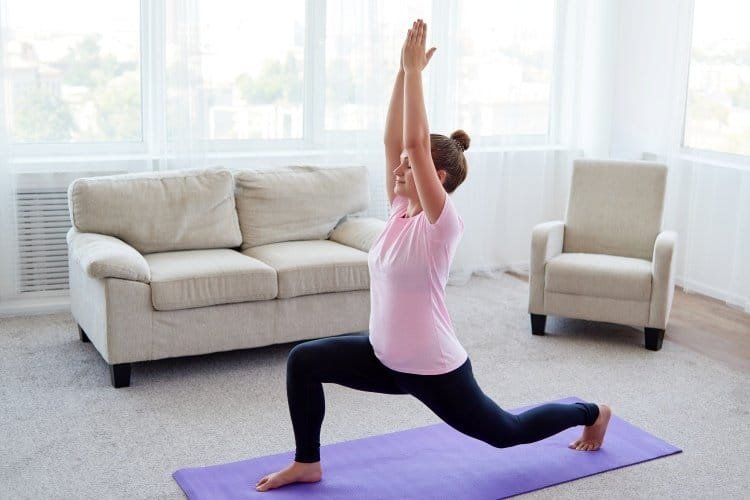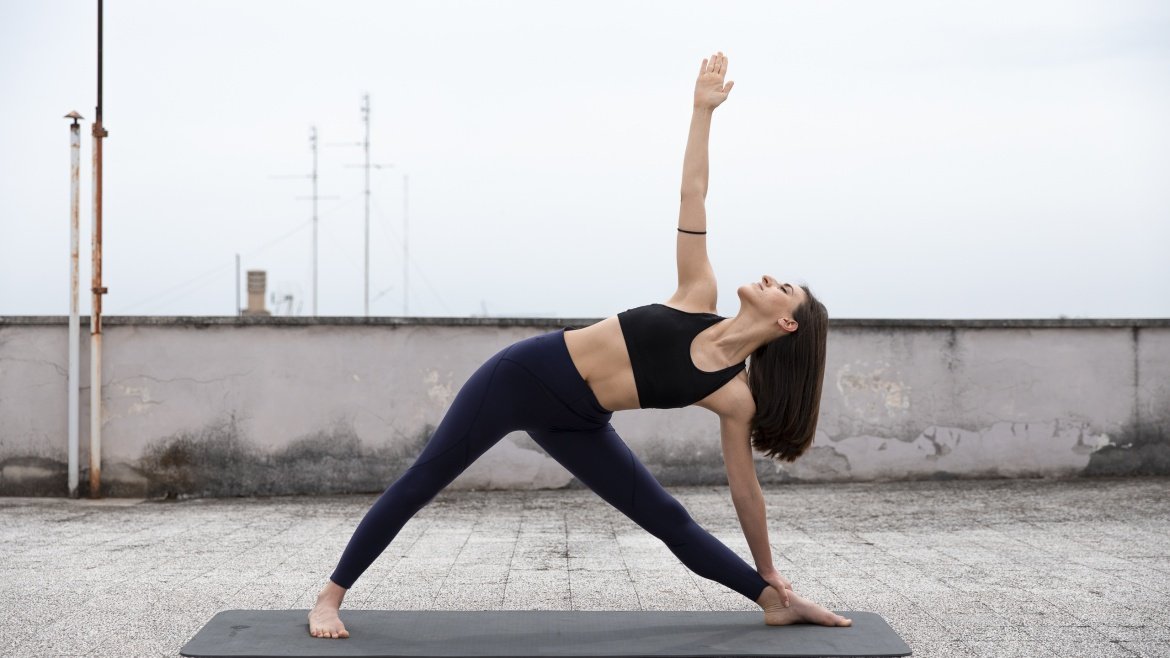
Yoga's therapeutic benefits can be found in many disciplines, such as medicine, psychology, and art. Modern medicine is efficient in treating physical disorders and illnesses. However, it's limited effectiveness when it comes addressing the emotional and intellectual layers of a person’s personality. Yoga can help improve your physical and mental health. Experienced yogins can apply yoga to a wide variety of conditions, such as anxiety, depression and anxiety.
Yoga is a holistic approach that integrates all aspects of the body and mind into the healing process. The Pancha Maya Kosha Model is a way for therapists to consider the physical body and other layers of health. Many yoga therapists are trained in a biopsychosocial model, which focuses on the mind as a source of pain. Unregardless of the root cause, a healthy mind is key to faster healing.

Yoga therapy has many benefits. Yoga improves your physical, mental, and spiritual health. Therapy's ultimate goal is to help you achieve your best health. Yoga cannot heal all ailments, but it can help to heal the mind and body. Yoga's therapeutic benefits are evident in its positive effects on mental and physical well-being. Meditation can be a key to improving your quality of life.
Yoga as therapy offers many other benefits than its physical and mental health benefits. There are numerous health and wellness benefits associated with it. It can even increase a person's quality life. As a form therapy, yoga can reduce stress, alleviate depression, and lower blood pressure. Yoga is not an alternative to medicine. But it can help you get better. To find out more, consult a certified yoga therapist.
Yoga therapy can be a great way to increase circulation and blood flow. Better circulation means oxygen-rich blood can reach all the tissues and organs of the body. This prevents strokes and heart attacks. It also lowers the resting heart rate, and improves endurance. This leads to weight gain and decreases bingeing. Patients will find it easier to adapt to a new lifestyle if they are practicing yoga.

Yoga can be used as a therapy to help with anxiety and stress. Yoga can help people manage their stress levels. This is an important part of holistic treatment. People with depression can benefit from yoga's therapeutic benefits. This form of meditation can be used to alleviate pain. For anxiety and depression, you can join a meditation group or take up Yoga. Yoga may be beneficial, depending on the nature and severity of your condition.
FAQ
How many times per week do I need to exercise?
It all depends on your time and the type of exercise that you enjoy. An average guideline is to do moderate-intensity aerobic activity 3 to 5 days per semaine. You shouldn't do too much. Consistent exercise is essential to achieving maximum benefit from your workouts.
What exercises are the best?
It all depends upon your fitness goals. Some people focus on endurance activities like running, cycling, and swimming. Others enjoy lifting weights or using resistance bands. There are many exercise programs on the market today. Choose an option that suits your lifestyle.
Which order is best for working out?
It all depends upon what you are trying to achieve. Start with heavy lifting if you're looking to build muscle mass. Then, move on to cardio. Next, if you're looking to lose weight then switch to strength training.
If you just want to burn fat, start by doing cardio. After that, you can add strength training.
Do cardio first if you are looking to increase muscle mass. It stimulates growth hormones that help build muscle mass.
Also, eat before you workout. This will give your muscles more fuel, so they work harder. This will make you feel better while working out.
What is a good gym routine for you?
Regular exercise is essential to staying fit. No matter what kind of exercise you do, as long you do it consistently. Consistency is key. If you want to achieve results, you must stick at it for an extended period.
Begin small daily activities like walking. Gradually increase your exercise time until you are able to spend 30 minutes per day. This could include running, cycling, swimming, weight training, yoga, or aerobics classes.
It is important to exercise every day of the week. If you have a valid reason to skip a session, it is best not to.
If you exercise outside, ensure that you wear appropriate clothing and footwear. Also, consider weather conditions and how they might affect your ability or safety while exercising.
Make sure that you drink plenty of water while you're exercising. Drinking alcohol at this time can lead to dehydration. Avoid caffeinated drinks, such as coffee, tea and cola. They will not only give you more energy but also dehydrate you.
When you first start exercising, you might feel tired after completing your workouts. However, if you continue with your program, you'll soon feel more energetic and refreshed.
Statistics
- The PRS enabled risk stratification for overall prostate cancer and lethal disease with a four-fold difference between men in the highest and lowest quartiles (HR, 4.32; 95% confidence interval [CI], 3.16-5.89). (pubmed.ncbi.nlm.nih.gov)
- According to the American Heart Association, blood pressure should be checked at least once every two years, beginning at age 20. (my.clevelandclinic.org)
- Are You One of the 20% of Guys (mh.co.za)
- By John Thompson Take a whopping 38% off a set of PowerBlock Pros. (menshealth.com)
- Cardmembers earn 5% Back at Amazon.com with a Prime Credit Card. (amazon.com)
External Links
How To
What should my diet look like before I start a workout?
Losing weight requires you to consume fewer calories than what you burn in exercise. Also, you must eat all the nutrients.
These include protein, carbohydrates and fats as well as vitamins.
The best way to achieve this is to eat smaller meals throughout a day rather than three large meals.
You may not be as effective if there is too much hunger during your workouts.
You could try drinking water instead of energy drinks which contain caffeine and sugar. This will help you stay hydrated as well as energized.
Be sure to eat enough fluids. You could lose electrolytes if you drink too much water.
For proper functioning of your body, electrolytes are necessary.
You can drink sports drinks if you don’t have access water. These drinks contain minerals such as sodium, potassium and calcium.
This helps replenish electrolytes that have been lost. But they won't replace what your body has lost due to sweating.
A multivitamin pill can be taken if you worry about losing too much salt while exercising.
These supplements contain additional vitamin B6, which can help regulate your body's sodium levels.
Supplements are not recommended if you don’t know the amount of salt in your food or beverages.
They aren't regulated by the Food and Drug Administration (FDA).
One example is that some sports drinks contain more sodium.
Some sports drinks may even contain artificial sweeteners or preservatives. These ingredients could cause digestive problems.
You could use sea salt if you are concerned about taking too much salt.
It contains fewer chemicals that table salt.
Sea salt also has low levels of iodine which is another mineral that is essential for healthy thyroid function.